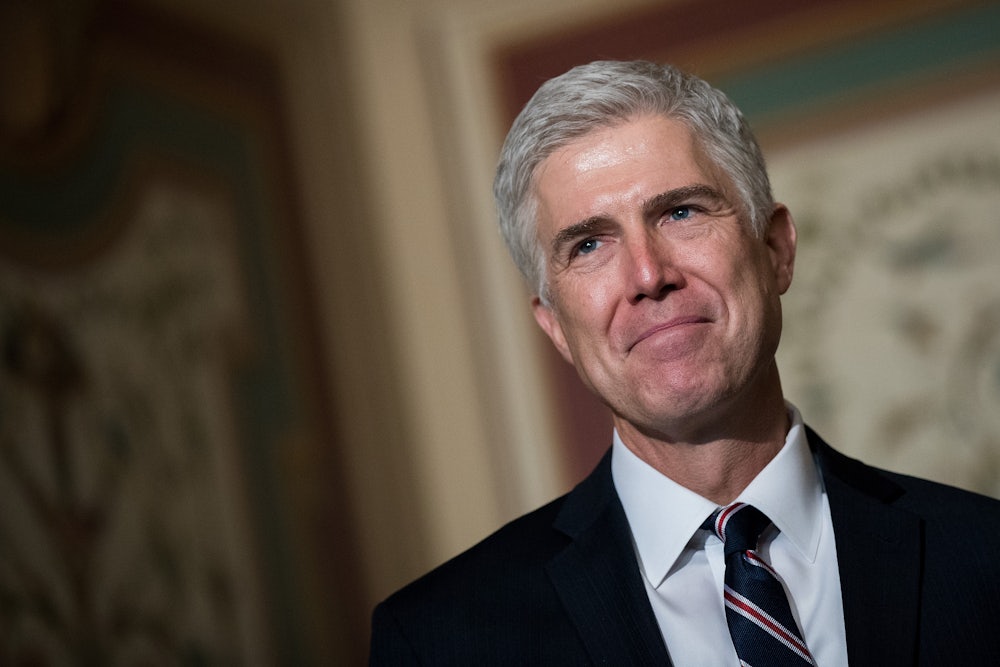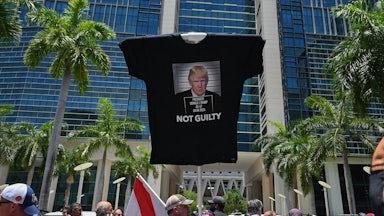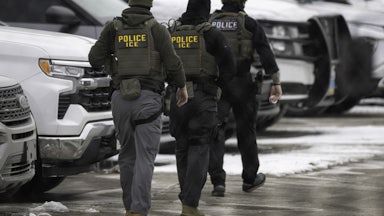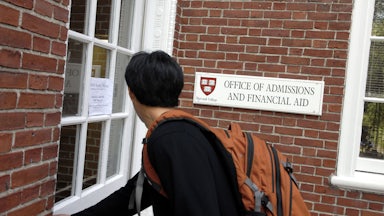The Supreme Court is often described as having conservative and liberal justices. This is useful in some ways and useless in others. The ideological split is accurate often enough, especially in the most consequential cases, to be a helpful shorthand. But there are plenty of cases where that divide doesn’t matter, and the justices’ individual foibles lead to what may seem like unexpected results.
Indian law is perhaps the clearest example of this today. The most persistent voice in favor of tribal sovereignty and Native American tribes’ constitutional rights is not a bleeding-heart member of the court’s liberal wing. It is Justice Neil Gorsuch, whose originalist approach to constitutional law has led him to a conclusion that few Supreme Court justices have ever truly held: that Native American tribes are a full and equal participant in the American constitutional order.
Nowhere is Gorsuch’s approach to originalism in Indian-law cases on better display than in Thursday’s ruling in Haaland v. Brackeen. In a 7–2 decision, the Supreme Court declined on Thursday to overturn the Indian Child Welfare Act of 1978, or ICWA, rejecting efforts to scrap a law designed to prevent the destruction of Native American cultures through assimilation by non-Indians. Justice Amy Coney Barrett, writing for the court, concluded that most of the law was constitutional and that the plaintiffs didn’t have standing to challenge the rest of it.
Her reading of the law will be what ultimately guides lower courts in ICWA cases going forward. But the law isn’t quite out of the woods yet. In the long run, it may be the divide between Gorsuch’s holistic view of the Indian commerce clause in his concurring opinion and the more Spartan version articulated by Justice Clarence Thomas in his dissent that shapes the future of tribal sovereignty.
Haaland v. Brackeen is a complex case, even by the Supreme Court’s standards. Four different parties took part in the litigation. The central figures were the Brackeens, a white evangelical family from Texas. (The federal government, the state of Texas, and the Navajo Nation are also parties.) They fostered a Cherokee and Navajo boy and later sought to adopt him. The Navajo Nation tried to intervene and have the boy adopted by a Navajo family instead by invoking the ICWA’s provisions but later withdrew from the case. The Brackeens are also trying to adopt the boy’s half-sister. Other couples seeking or hoping to adopt Indian children later joined the lawsuit; their complaints are generally similar.
Congress passed the ICWA to address what amounted to cultural genocide. For decades prior to the law’s enactment, state courts had routinely placed Indian children with non-Indian parents, reflecting a broader federal policy of forced assimilation. The result was that many Indian children grew up separated from their cultures and traditions, with disastrous personal and psychological effects and dire consequences for tribal nations’ long-term vitality.
The ICWA sought to end this problem by adding a series of protections when an “Indian child,” the law’s term for children who are tribal members or potential tribal members, enters the adoption process. In general terms, states must notify the tribe in question so they can intervene if necessary. Tribal families are generally given placement preference over non-Native families, even if the family is not a member of the child’s specific tribe. If an adoption violates the ICWA’s notice and placement requirements, the tribe can seek to reverse it.
The Brackeens, later joined by Texas and other Republican-led states, filed a federal lawsuit in Texas arguing the ICWA was unconstitutional. They claimed, among other things, that Congress did not have the constitutional power to “commandeer” state adoption proceedings and that giving placement preferences to tribal families was racial discrimination in violation of the Fourteenth Amendment’s equal protection clause. The federal government and the Navajo Nation, along with other tribes, argued that the Supreme Court has long recognized that “Indian” is a political classification, not a racial one, and that Congress had a well-established “plenary power” to govern Indian affairs, including adoptions.
Had the lawsuit appeared before most federal judges in the United States, it would have been a fairly straightforward victory for the federal government and the tribes under existing precedents. Unfortunately for them, however, it came before Judge Reed O’Connor, who is best known for ruling every few years that the Affordable Care Act is unconstitutional, even after the Supreme Court roundly rejected his theories. O’Connor broke with precedent to broadly side with the Brackeens. The Fifth Circuit Court of Appeals struggled to contain the damage on appeal, but its 2021 ruling was so fractured that all four parties separately asked the Supreme Court to intervene.
In the broadest terms, the Brackeens and their allies lost on Thursday. Barrett, writing for the court, punted on whether the ICWA went beyond Congress’s constitutional powers by concluding that the plaintiffs hadn’t made a convincing enough argument. “If there are arguments that ICWA exceeds Congress’s authority as our precedent stands today, [the plaintiffs] do not make them,” she wrote. The court rejected the anti-commandeering claim outright under the court’s precedents and declined to address the equal protection clause on standing grounds, reasoning that federal courts could not give relief to them in state adoption proceedings.
Enter Gorsuch. “I am pleased to join the Court’s opinion in full,” he wrote in his concurrence. “I write separately to add some historical context. To appreciate fully the significance of today’s decision requires an understanding of the long line of policies that drove Congress to adopt ICWA. And to appreciate why that law surely comports with the Constitution requires a bird’s-eye view of how our founding document mediates between competing federal, state, and tribal claims of sovereignty.” He spent the next 38 pages offering his overarching vision for understanding how Native American tribes fit into the rest of the Constitution.
When the justices write concurring and dissenting opinions, they have an audience in mind. Sometimes it’s for their colleagues, especially when things get pointed between them. Sometimes it’s for future members of the Supreme Court: One justice famously described dissents as an appeal to the “brooding spirit of the law.” Justice Antonin Scalia occasionally said that he wrote his dissents to appeal to first-year law students and provide fodder for law school discussions. Thomas appears to write in hopes of articulating an alternative approach to reading the Constitution that future like-minded lawyers and jurists can turn into majority opinions; to that end, he frequently cites his own previous writings.
Gorsuch’s audience, at least in his Brackeen opinion, appears to be a mixture of the general public, lower court judges, and legal scholars. That he would address them all in the same tone is not surprising since Indian law is deeply unfamiliar ground for most of the legal profession. “This is all much more straightforward than it sounds,” he wrote at one point. “Take each piece of the puzzle in turn. Then, with the full constitutional picture assembled, return to ICWA’s provisions. By then, you will have all you need to see why the Court upholds the law.”
He began by explaining the full historical backdrop from which the ICWA emerged. While Barrett provided a basic summary in her majority opinion, Gorsuch delved into the broader arc of U.S.-tribal relations, from reservations and boarding schools and child removal to the present day. “In all its many forms, the dissolution of the Indian family has had devastating effects on children and parents alike,” he wrote. “It has also presented an existential threat to the continued vitality of tribes—something many federal and state officials over the years saw as a feature, not as a flaw. This is the story of ICWA.”
Gorsuch writes with, if not outright sympathy, then at least a strong empathy for the tribes. The concurring opinion contains a striking number of references and citations to academic works about child welfare and Native American history. He then shifts gears to describe how the Constitution views tribal governments as a whole. This is a fundamentally originalist exercise: Gorsuch’s chronology starts before the first English settlers landed at Jamestown, and he takes pains to describe how early American presidents and lawmakers treated tribal governments as sovereign and independent nations.
“Keep this original understanding of tribal sovereignty in mind,” he advised. “It provides an essential point of framing.” That admonishment is necessary because tribes steadily lost the sovereignty they enjoyed in 1776 over the following two centuries. Under the original public meaning that Gorsuch has excavated, Congress’s powers under the Indian commerce clause are not merely “commercial” in nature. He argued that the Framers intended, and the founding generation showed, that Congress has the power to regulate all sorts of interactions between Indians and non-Indians, as the law would describe them.
This is a fundamentally revisionist exercise, as originalism often is. Gorsuch admitted as much. “In the late 19th century, this Court misplaced the original meaning of the Indian Commerce Clause,” he wrote. “That error sent this Court’s Indian-law jurisprudence into a tailspin from which it has only recently begun to recover. Understanding that error—and the steps this Court has taken to correct it—are the last missing pieces of the puzzle.” He noted that the court has already undertaken this exercise in other areas of constitutional law, citing recent decisions on the establishment clause and the Sixth Amendment. (More controversial rulings on abortion and gun rights are studiously unmentioned, perhaps because Justices Sonia Sotomayor and Ketanji Brown Jackson partially joined this opinion.)
Gorsuch’s understanding of tribal sovereignty is not shared by some of the court’s other originalists, however. Justices Clarence Thomas and Samuel Alito wrote separate dissenting opinions taking issue with the ICWA. Alito took a fairly straightforward approach that generally ignored Gorsuch’s counterarguments: He simply concluded that child custody matters have always been a state-level matter, not a federal one, and the ICWA’s provisions to the contrary should fall.
Thomas, by comparison, suggested that most of the court’s thinking on Indian law might be wrong. He proposed that the “plenary power doctrine”—which generally holds that Congress has extremely broad authority over Indian affairs—was erroneous and should be overturned. “I have searched in vain for any constitutional basis for such a plenary power, which appears to have been born of loose language and judicial ipse dixit,” he wrote, using a Latin term for unsupported statements in judicial opinions.
Gorsuch too was critical of the plenary power doctrine, which first fully emerged in the 1970s, noting that it “injected incoherence into our Indian-law jurisprudence.” He even praised Thomas’s past criticism of the doctrine’s perceived logical inconsistencies. But Gorsuch also made clear that he sought to restore what he described as “the original bargain struck in the Constitution.” This meant an Indian commerce clause that “confirms, rather than abridges, principles of tribal sovereignty.”
Thomas appeared to be uninterested in this reinterpreted Indian commerce clause. Rather than engage with the broader scope of Native American history, as Gorsuch did, he concluded outright that the clause “is about commerce, not children.” And since the treaty-making era of tribal relations is over, that clause could not save the ICWA either, Thomas reasoned. At one point, he echoed the history-and-tradition test he outlined in a Second Amendment case last year to argue against ICWA’s constitutionality.
“Most obviously, ICWA has no parallel from the founding era; it regulates the child custody proceedings of U.S. citizens in state courts—not on Indian lands—merely because the children involved happen to be Indians,” Thomas wrote. “If nothing else, the dearth of founding-era laws even remotely similar to ICWA should give us pause.” Setting aside the question of how adoption proceedings worked in 1789, if the ICWA had a “parallel from the founding era,” then the ICWA would not exist today. And it is unsurprising that there is no founding-era law regulating “Indians who were also citizens,” as Thomas apparently sought, because almost no Native Americans were actually U.S. citizens in that era. (In fact, Congress did not generally confer citizenship upon them until 1924.)
Thomas’s search for nonexistent laws to use against the ICWA stood in sharp contrast with Gorsuch’s more nuanced understanding of American history. “Often, Native American tribes have come to this court seeking justice only to leave with bowed heads and empty hands,” he wrote. “But that is not because this court has no justice to offer them. Our Constitution reserves for the tribes a place—an enduring place—in the structure of American life. It promises them sovereignty for as long as they wish to keep it.” Even more than it is a tribute to Native perseverance, this is an admonishment of Gorsuch’s predecessors—and maybe even some of his colleagues.
Whether Gorsuch’s or Thomas’s reading of the Indian commerce clause is right is more than just abstract legal theory. As I noted earlier, the court saved the ICWA this time, but it may not do so again in the future. Barrett’s majority opinion leaves the door open for future lawsuits to challenge Congress’s authority to enact the ICWA so long as they don’t use the same arguments as Texas and the Brackeens. And Kavanaugh wrote a short concurring opinion where he said he agreed with the court’s decision to dismiss the equal-protection claim on standing grounds but nonetheless considered it a “serious” claim. When the court next hears a challenge to the ICWA, the justices will have to at least reckon with Gorsuch’s strong originalist defense of it.








